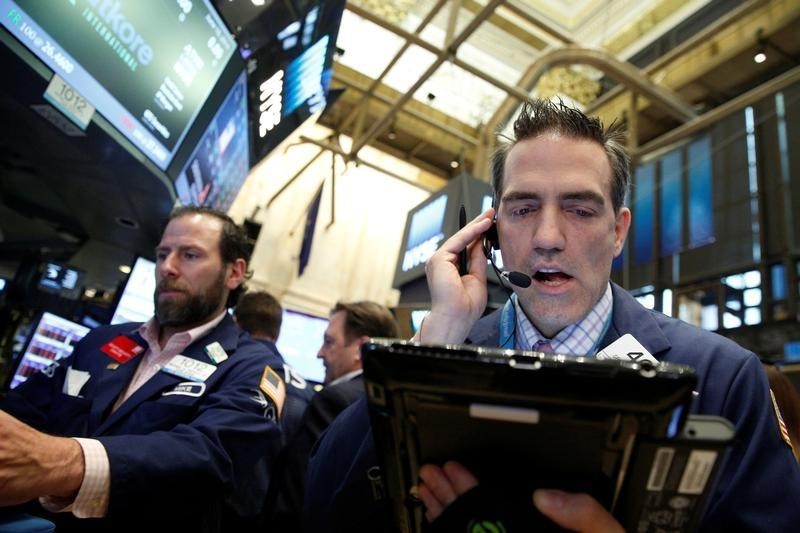By Saqib Iqbal Ahmed
NEW YORK (Reuters) – U.S. stock markets could see heavy trading and increased volatility as investors position for next week’s referendum on whether Britain remains in the European Union.
The June 23 vote could have big implications for the global economy and U.S. stocks. Add to this the annual rebalancing of the FTSE Russell indexes, set to go into effect a day after the vote, and it makes for a busy trading week.
Friday could be the busiest trading day of the year as fund managers adjust their positions to that rebalancing.
Should the British vote to leave the EU, U.S. shares could fall sharply, but a “Remain” vote won’t necessarily result in a big rally, because domestic economic worries may be capping U.S. stocks.
“We are still stuck in the churn,” said Jeff Morris, Head of U.S. Equities at Standard Life Investments in Boston.
Recent polls show the ‘Leave’ campaign in the lead and this has weighed on stocks. Campaigning for the referendum was suspended after the murder of lawmaker Jo Cox, a supporter of Britain staying in the EU.
From an economic standpoint, a move by Britain to quit the EU might not have been as potentially troubling for U.S. stocks. But slowing economic growth is also limiting the upside for those shares, said Eric Wiegand, senior portfolio manager at U.S. Bank’s Private Client Reserve.
“In a low-growth environment, even smaller problems become more pronounced,” he said.
Some investors are not taking a chance.
“We trimmed overall international exposure in the RidgeWorth Allocation Strategies as a means to reducing overall portfolio risk, until such time as the clouds begin to lift,” said Alan Gayle, director of asset allocation at RidgeWorth Investments in Atlanta, referring to Brexit worries.
The CBOE Volatility Index, the favored gauge of investor anxiety, hit a 4-month high on Thursday.
“There has been an increase in investors looking for hedges,” said Stewart Warther, an equity derivatives strategist at BNP Paribas.
Implied volatility – an options-based measure of expected swings in shares – gives a good sense of just how much the impending vote is on investors’ minds.
Usually, implied volatility tends to gradually slope up the further out in time you go. Investors pay more to be protected against unknown risks down the line.
However, options on S&P 500 index that expire a day after the vote sport a level of implied volatility that is higher than for options expiring over the next two months, per BNP Paribas data.
And while a lot of the recent selling has been pegged to Brexit risk, there is little expectation for a big relief rally on Wall Street in case Britain chooses to stay.
“It just doesn’t seem like there is much incentive to move out on the risk curve,” said Standard Life’s Morris, pointing to recent economic data that suggests that recovery is still somewhat tenuous.
Adding to any potential volatility next week will be the rebalancing of Russell indexes – an annual event that requires index-following fund managers to rebalance their own portfolios.
With this year’s rebalance of the Russell 2000 and the Russell 1000 indexes set for a day after the Brexit vote, there is added drama. Managers of index-following funds are forced to buy or sell shares to mimic index performance.
Money managers who might have adjusted positions in anticipation of the rebalance will now prefer to wait until after the vote, said Chad Dale, director of index research at ITG in Toronto.
“What that really does is it compresses the indexer trade into the final day.”
(Reporting by Saqib Iqbal Ahmed, additional reporting by Chuck Mikolajczak; editing by Linda Stern and Nick Zieminski)


